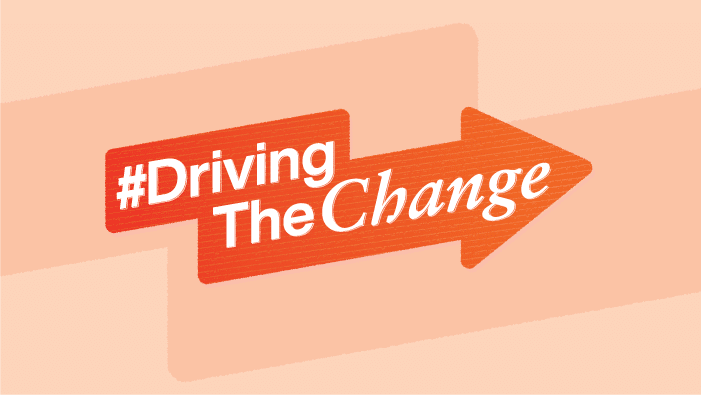Listen to this blog
The return of normalcy was completed in 2023, marking the conclusion of the challenging pandemic years that began in early 2020. Despite the unprecedented impact on human life, businesses, workplaces, festivals, sporting events, and all gatherings resumed to pre-pandemic levels in 2023. With only a few exceptions, most companies summoned their employees back to the office, and the workforce gradually accustomed to in-office work culture.
However, this was a year where the workplace saw a seismic shift, echoing with a new set of terminologies and trends. From quiet rebellion to resurgent boomerangs, the post-pandemic landscape reshaped the way we work, leaving a trail of buzzwords that capture the zeitgeist of the year.
Check out some of the realities of new job market.
Workplace trends in 2023
The list of workplace trends in 2023 would be exhaustive. Here we are listing 7 workplace buzzwords or trends.
1. Quiet hiring: The antidote to quiet quitting?
Remember the Great Resignation of 2022? Well, 2023 saw a subtle counterpoint: “quiet hiring.” This strategy involves upskilling existing employees, leveraging freelancers, and diversifying talent pools without fanfare or formal hiring processes. As per a Gartner reports, organizations are implementing quiet hiring in desire to maximize existing talent and navigate the tight labor market.
2. Career cushioning: Soft landing in a turbulent job market
Facing economic uncertainty, employees are increasingly turning to “career cushioning.” This involves securing a new job while maintaining their current position, creating a safety net in case of layoffs. A Bluecrew survey shows that 57% of professionals are actively “career cushioning,” highlighting a growing sense of job insecurity and a desire for stability.
3. Copycat layoffs: Domino effect of downsizing
As tech giants like Netflix and Meta trimmed their sails, a domino effect of “copycat layoffs” swept across industries. This phenomenon, where companies mimic the layoff strategies of their competitors, fueled anxiety and uncertainty in the workforce. A report by Challenger, Gray & Christmas estimates that over 100,000 tech workers were laid off in 2023, showcasing the ripple effect of economic downturns.
4. Bare minimum Monday: The silent protest
A viral TikTok trend, “Bare Minimum Monday,” captured the quiet resistance of employees against demanding work cultures. This unofficial movement encourages workers to prioritize personal well-being on Mondays, refusing to go above and beyond the minimum required. While its impact on productivity remains debated, it highlights the growing need for work-life balance and employee well-being initiatives.
5. Rage applying: Throwing applications like Molotov Cocktails
Frustrated with rejection and the competitive job market, “rage applying” became a phenomenon. This involves sending out a flurry of job applications, often without proper research or tailoring, fueled by anger and desperation. A LinkedIn article highlighted the need for improved candidate experiences and realistic job expectations to divert the rage applying.
6. Resenteeism: The slow burn of discontent
Beyond the quiet quitting of 2022, 2023 saw the rise of “resenteeism.” This insidious phenomenon involves employees remaining in their jobs but showing passive resistance through reduced productivity and engagement. A Gallup survey reveals that 31% of employees experience chronic absenteeism, highlighting the need for addressing employee grievances and fostering positive work environments.
7. Boomerang employees: The return of the prodigal workers
With the great resignation settling, a growing number of employees are returning to their former employers, dubbed “boomerang employees.” As per an international survey, 1 in 5 employees who quit their job during the pandemic now returned to their old companies thanks to improved work cultures, skills development opportunities, and familiarity. This trend signals a shift in employee loyalty and a recognition of the value of past experiences.
Beyond the buzzwords: A deeper look at workplace trends
While these terms offer a glimpse into the evolving workplace landscape, they are just the tip of the iceberg. 2023 also saw a rise in remote-first companies, the increasing importance of upskilling and reskilling, and a growing focus on mental health and well-being in the workplace.
Prioritizing the development of future-proof skills is imperative for professionals navigating the evolving landscape of workplaces. As such, investing in continuous learning to acquire new skills and knowledge is crucial, particularly amidst the integration of Artificial Intelligence across diverse sectors. An effective strategy for professional relevance is enrolling in online degree or certificate programs.
Online Manipal stands as a distinguished platform offering a curated selection of online degrees and certificate programs from premier universities in India. This portfolio includes esteemed offerings such as online MBA programs, online MCA degrees, online MCom, online MSc in Data Science and Business Analytics, MA programs, as well as undergraduate programs including online Bachelor of Arts, BCom, BBA, and BCA. Tailored to meet the needs of working professionals, these courses are delivered through an intuitive learning management system, facilitating flexible study schedules from any location.
Led by top faculty members from Manipal Universities such as Manipal Academy of Higher Education, Manipal University Jaipur, and Sikkim Manipal University, classes are held at times convenient for learners. Remote-proctored online examinations, conducted through a secure platform, further enhance the accessibility and convenience of the learning experience. By engaging with Online Manipal’s offerings, professionals can proactively enhance their skill sets to meet the demands of the contemporary and future workplace landscapes.
You may like to know more about the job security amidst Artificial Intelligence.
Conclusion
As we enter 2024, understanding these trends and their implications is crucial for both employers and employees. Organizations need to adapt to the changing needs of their workforce by offering flexible work arrangements, prioritizing employee well-being, and fostering a culture of continuous learning and growth. Employees, meanwhile, need to be proactive in managing their careers, seeking opportunities for upskilling and reskilling, and advocating for their needs in the workplace.
By embracing the changing landscape and navigating the new terminologies of work, we can all create a more fulfilling and sustainable future of work in 2024 and beyond.
Prepare for your next career milestone with us
















